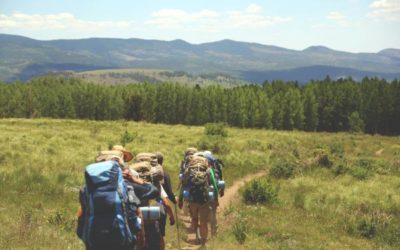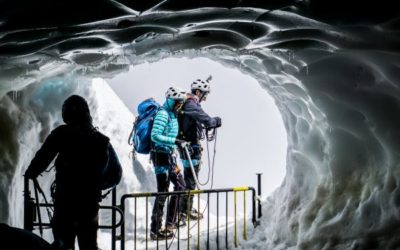In this Top 20 Questions: How to Start a Wilderness Ministry series, we have answered questions relating to ministry foundations, casting vision (exposure), and recruiting staff. Now it is time to think about training. What skills will you and your staff need in order to safely and effectively facilitate trips? Excellent guide training is a critical component to developing and sustaining a high-quality outdoor ministry program.
When considering what you need to know, there are two categories of skills that you want to make sure you are trained in: soft skills and hard skills.
TOOLS TO DEVELOP A SHEPHERD’S HEART
As you can tell from this series so far, loving Jesus and having a heart for people are qualities that leaders must-have for effective outdoor ministry. Soft skills training equips leaders with different tools to proclaim the Gospel and disciple others using the outdoor context. Here is a list of soft skills that I have seen many ministries cover:
- Knowledge of the Biblical rationale for outdoor ministry
- Leadership
- Communication & counseling skills
- Environmental ethics & stewardship
- Expedition behavior & group dynamics
- Trip planning
- Decision making & problem-solving
- Teaching, processing, & transferring learning
- Why wilderness adventure is effective
- Sharing the Gospel on the trail
- Active listening
- Leading great discussions
- Setting up quiet times on the trail
- Conflict Resolution
- Managing Programs
The scope of soft skills training is very large and there are always new things to learn.
RELATED POST: Wilderness Leadership | “Heart Skills” before Hard Skills
SKILLS FOR THE WILD
High-quality hard skills lend you the opportunity to use your soft skills. The type of ministry you run will determine what specific skills you need to acquire and stay trained in; however, it is always beneficial to have a broad scope. These are some of the most important hard skills for all wilderness leaders:
Your ministry may also include outdoor activities that require a special set of skills such as rock climbing, abseiling, rappelling, white water rafting, and kayaking. Make sure you gain proficient technical skills and have a thorough understanding of the equipment needed for the activity. Regardless of your ministry niche, physical condition is imperative for leaders. A certain level of fitness is required to participate in outdoor activities. When you are leading others, it is even more important to be able to physically lead a group and handle extra stresses.
Experiential training, such as a trail training course is extremely helpful in gaining experience and learning how to integrate hard and soft skills together. Exposure to a variety of elements (i.e., weather, difficulty level, terrain) can rapidly fill your toolbox and make you a better leader. The more you experience, the better!
START TRAINING NOW
- Make a list of hard and soft skills that you want to develop or could improve. (The next post will discuss where you can go to find training).
- Find people who are more proficient at mountaineering (or whatever outdoor activity you facilitate) and join them on an adventure. See what new things you can learn.
- Commit to physical fitness. See if you can run a mile in under 9 minutes. Or, if you already have a fitness routine in place, what can you do to improve?
- Challenge your staff to sharpen their skills.



